Creating Literacy Instruction for All Students 8th Edition Chapter 1
Science of Reading: The Podcast
—
Science of Reading: The Podcast delivers the latest insights from researchers and practitioners in early reading. Each episode takes a conversational approach and explores a timely topic related to the Science of Reading.

Science of Reading resource site
—
Looking to make the shift to the Science of Reading in your classroom, school, or district? This resource site is packed full of FREE rubrics, checklists, and roadmaps to help you explore and implement evidence-based literacy practices. Visit the site.

Available episodes
—
In each episode, host Susan Lambert, Chief Academic Officer, Elementary Humanities at Amplify Education, explores the increasing body of scientific research around how reading is best taught. As a former classroom teacher, administrator, and curriculum developer, Susan has a special interest in turning theory into best practices applicable immediately in the classroom, as well as in showcasing national models of excellence in this realm. Listen and subscribe here!
 | Season 4, Episode 10. What we've learned and the guests we're grateful for In this episode, we join Susan Lambert as she rewinds the tape and highlights some of the standout learning moments that have occurred throughout this season of the podcast. Guests like Sue Pimentel, Julie Washington, Nadine Gaab, and more have all taught us invaluable lessons about the Science of Reading. You'll hear top takeaways from each of their episodes as they cover topics such as literacy accelerators, learning to read digitally versus in print, teaching reading to multi-language learners, dialectical variety, and so much more. Listen here! |
 | Season 4, Episode 9. Dyslexia and developmental trajectories: Dr. Nadine Gaab In this episode , Susan Lambert joins Dr. Nadine Gaab to discuss dyslexia and the developmental progression of the brain and behavior of students as they learn to read. Dr. Nadine Gaab is an Associate Professor of Education at the Harvard Graduate School of Education whose work focuses on typical/atypical learning trajectories from infancy to adulthood, with a special emphasis on language and reading development and the role of the environment in shaping these trajectories. In this episode, Dr. Gaab provides further insight into these developmental trajectories as they relate to early intervention for at-risk students. She differentiates between early diagnosis of dyslexia versus early identification of at-risk students. Adding nuance and complexity to the discussion of dyslexia, Dr. Gaab emphasizes the ways educators can ensure that all students experience the joy of learning to read. Listen here! |
 | Season 4, Episode 8. Empowering multilingual learners: Elsa Cárdenas-Hagan In this episode, Susan Lambert is joined by Elsa Cárdenas-Hagan to discuss the unique challenges and opportunities presented when teaching multilingual learners how to read. Dr. Cárdenas-Hagan is a bilingual speech language pathologist and a certified academic language therapist. She is also the director of Valley Speech Language and Learning Center in Brownsville, Texas. She discusses how teachers can make connections between students' home languages and English in order to celebrate their language and give them new tools to better understand English. She stresses the importance of teachers educating themselves on their students' home languages so they can spot orthographic and phonological similarities and differences. Lastly, she highlights the importance of educators collaborating for the success of the students. Listen here! |
 | Season 4, Episode 7. Linguistic Variety and Dialects: Difference, not error with Julie Washington In this episode, Susan Lambert is joined by Dr. Julie Washington to discuss linguistic variety and dialects as difference, not error, and how to best support all students as they learn to read. Dr. Washington, professor in the School of Education at the University of California, Irvine (UCI) and a speech-language pathologist, offers practical advice for educators teaching reading to children who don't use general American English and discusses how to do so in a way that respects students' community languages and dialects. She reminds educators that students rise or fall to the expectations set for them, and encourages educators to remember that if they embrace language variety as something that needs to be understood and incorporated into developing successful readers, theywill develop successful readers. Listen here! |
 | Season 4, Episode 6. Educator voices: Personal journeys through the Science of Reading In this episode, Susan Lambert joins elementary educator Lindsey Kemeny for a conversation about her journey of discovery with the Science of Reading. A current second grade teacher with ten years of experience in elementary education, Lindsey Kemeny has been published in the Reading League Journal and spoken alongside literacy experts like Emily Hanford. In this episode, Lindsey discusses how she processed her shock and guilt at realizing she'd never been taught how to properly teach reading. She also discusses the journey she took as a mother and an educator when her son was diagnosed with severe dyslexia alongside depression, and how that inspired her to dive into what is needed for good literacy instruction and what students with learning disabilities need. Listeners will also hear stories from additional educators from across the country about how the Science of Reading has transformed their classrooms. Listen here! |
 | Season 4, Episode 5. Reading as Liberation: Sue Pimentel In this episode, Sue Pimentel—co-founder of the nonprofit StandardWorks, founding partner of Student Achievement Partners, and lead author of the Common Core State Standards for ELA—joins Susan Lambert to discuss her new report "Reading as Liberation—An Examination of the Research Base." Sharing key insights, she expands on her findings about personalization, literacy accelerators, and implementation, as well as how mutual respect between student and teacher is key to reading success. Listen here! |
  | Season 4, Episode 4. Learning to Read Digitally vs. in Print: Dr. Lauren Trakhman & Dr. Patricia Alexander In this episode, Susan Lambert sits down with Lauren Trakhman and Patricia Alexander, professors from the Department of Human Development and Quantitative Methodology within the College of Education at the University of Maryland, College Park, to discuss their research on the effectiveness of teaching reading in print vs. digitally. Their conversation explores the ways in which teaching reading in print remains vital even in a digital world. Drs. Trakhman and Alexander also explain why it's important to avoid making assumptions about students' abilities to use technology and how that can be a detriment to reading success. Lastly, they discuss strategies for using technology to boost children's foundational skills. Listen here! |
 | Season 4, Episode 3: Learning disabilities and their emotional impact: Dr. Sheila Clonan This episode features Dr. Sheila Clonan discussing her work with identifying learning disabilities (particularly dyslexia) in children. Dr. Clonan also explores the mental and emotional effects of learning to read with dyslexia and how it impacts behavior and self-concept, providing two insightful analogies that illustrate what it feels like for students who aren't given explicit instruction but are still expected to know how to read. She then ends the episode with practical advice for educators and parents on how to support and encourage children. Listen here! |
 | Season 4, Episode 2: Ensuring literacy success for all: Dr. Tracy Weeden Dr. Tracy Weeden, CEO and President of the Neuhaus Education Center, joins host Susan Lambert to discuss ensuring literacy success for all. She shares what it means to be a literacy ally, what the 'COVID Chrysalis' is, and how teachers need to bridge the gap between the language students learn in school and the language they bring from home. Listen here! |
 | Season 4, Episode 1: Applying the Science of Reading at any grade level: Laura Cusack Kicking off our new season, Susan Lambert hosts this special episode with Laura Cusack, Executive Director of K–8 ELA Strategy at Amplify. This dynamic duo sheds light on the pandemic's effects on literacy achievement and strategizes how to make up for lost foundational skills while keeping students moving forward in grade-level learning. They also urge educators to make it a point to honor the diverse experience of their students during reading instruction. Listen here! |
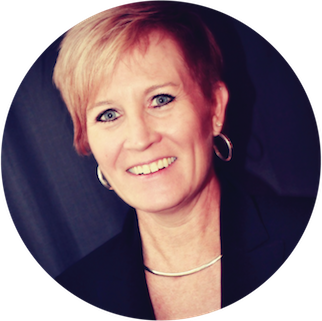 | Season 3, Episode 13. Deconstructing the Rope: A look back at Season 3 Join your host, Susan Lambert, as she recaps Deconstructing the Rope, our series for season 3 of Science of Reading: The Podcast. She highlights the special guests we've had this season such as Louisa Moats, Bruce McCandliss, and Sonia Cabell and shares their expert insights on Scarborough's Reading Rope. From vocabulary to word and sight recognition, tune into this special episode and cement this knowledge in your Science of Reading journey. Listen here! |
 | Season 3, Episode 12. Fostering accessible instruction for all: DeJunne' Clark Jackson Join DeJunne' Clark Jackson, Vice President of Program Development for the Center for Development and Learning, as she discusses how to provide all students with equal access to high-quality reading instruction. She urges listeners to see each student as an individual in order to assess accurately and provide the most effective kind of instruction. Finally, she speaks to the connection between the Science of Reading and dyslexia and leaves us with an anecdote on diversity, equity, and inclusion. Listen here! |
 | Season 3, Episode 11. Continuously Improving Literacy Instruction: Alana Mangham Join Alana Mangham, literacy specialist for the Center for Development and Learning, as she shares her pathway from educator to changemaker in the Science of Reading field. She'll also highlight her successful four-part literacy plan and urge you to question your instructional practices to better foster reading achievement in children today. Listen here! |
 | Season 3, Episode 10. Deconstructing the Rope: Language structures with Kate Cain Join Kate Cain, professor of language and literacy at Lancaster University, as she unwinds language structures, a strand of Scarborough's Reading Rope. In the latest episode of our Deconstructing the Rope series, Kate explores language structures in the simple view of reading and explains its connections across reading comprehension in literacy development. She also highlights the reciprocal relationship between books and conversation and underscores the importance of reading aloud to children from a young age to develop their vocabulary and semantics. Listen here! |
 | Season 3, Episode 9. Deconstructing the Rope: Vocabulary with Nancy Hennessy Join Nancy Hennessy, past president of the International Dyslexia Association, as she unwinds vocabulary, a strand of Scarborough's Reading Rope. In the latest episode of our Deconstructing the Rope series, Nancy defines the role of vocabulary and elaborates on the nuanced structures of comprehension in literacy instruction. She also highlights how to explicitly teach vocabulary to students through her research-backed, four-pronged approach. Listen here! |
 | Season 3, Episode 8. Deconstructing the Rope: Language comprehension with Sonia Cabell Join Sonia Cabell, assistant professor at the School of Teacher Education at Florida State University, i n the latest episode of our Deconstructing the Rope series as she unwinds language comprehension, a strand of Scarborough's Reading Rope. Sonia explains the true definition of language comprehension in relation to the simple view of reading and highlights the role of parents and educators in the use of advanced language models in literacy development. She also reflects on the impact of the COVID-19 pandemic on teachers and families and discusses how it has highlighted the importance of education today. Listen here! |
 | Season 3, Episode 7. A Defining Movement: The Reading League on the science of reading In this special episode, Dr. Maria Murray, President and CEO of The Reading League, analyzes the intricacies of literacy instruction and shares common misconceptions that educators have about the science of reading. She explains why The Science of Reading: A Defining Movement coalition was founded: the belief of clear understandings of what the science of reading is and what it is not to promote the proper use of instructional practices aligned with the findings from the science of reading. Listen here! |
 | Season 3, Episode 6. Deconstructing the Rope: Background knowledge with Susan Neuman Join Susan Neuman, Professor of Childhood and Literacy Education at the Steinhardt School at New York University, as she unwinds background knowledge, a strand of Scarborough's Reading Rope. In the sixth episode of our Deconstructing the Rope series, Susan explains the important link between background knowledge and reading comprehension in the science of reading and shares insights about her five research-based principles to build knowledge networks in literacy instruction. She also highlights the connection between speech and reading and previews her upcoming studies on the role of cross-media connections in children's learning. Listen here! |
 | Season 3, Episode 5. Deconstructing the Rope: Sight recognition with Dr. Bruce McCandliss Join Dr. Bruce McCandliss, Professor at the Graduate School of Education of Stanford University, as he unwinds sight recognition, a strand of Scarborough's Reading Rope. In the fifth episode of our series, Bruce explains the role of sight and word recognition in the science of reading and highlights the importance of the rapid integration of print, speech, and meaning. He also encourages listeners to be cognizant of the ever-changing, technological learning environment while nurturing young readers and writers. Listen here! |
 | Season 3, Episode 4. Plain Talk: Making the Shift to the Science of Reading in Your District Join leading experts Natalie Wexler, Ernesto Ortiz, Dr. Carolyn Strom, and Susan Lambert for a podcast on making the shift to the science of reading. In this special episode, they discuss how educators can implement the science of reading through an incremental change on all levels, from a classroom to entire districts. Sharing their research and both professional and personal experiences, the panelists share the leadership knowledge, training, and curriculum advice you've been looking for. Listen here! |
 | Season 3, Episode 3. Deconstructing the Rope: Decoding with Dr. Louisa Moats Join Dr. Louisa Moats, President of Moats Associates Consulting, as she unwinds decoding, a strand of Scarborough's Reading Rope. In the third episode of our Deconstructing the Rope series, Louisa highlights the significance of decoding in the science of reading and discusses the value of becoming students of our own language. She also mentions the reciprocal relationship between decoding and encoding and why both are essential to provide effective phonics instruction to children in the classroom. Listen here! |
 | Season 3, Episode 2. Deconstructing the Rope: Word recognition with Alice Wiggins Join Alice Wiggins, Vice President of Instructional Design & Products at UnboundEd, as she unwinds word recognition, a strand of Scarborough's Reading Rope. In the second episode of our Deconstructing the Rope series, Alice explains the role of word recognition in the science of reading and highlights the importance of explicit phonics instruction. She also urges listeners to advocate for an aligned curriculum to bring forth a systematic and equitable approach to reading for all students. Listen here! |
 | Season 3, Episode 1. Deconstructing the Rope: An introduction with Dr. Jane Oakhill Dive into our first episode of our Deconstructing the Rope series as Dr. Jane Oakhill, professor of experimental psychology at the University of Sussex, provides an overview of Scarborough's Reading Rope. She also emphasizes the importance of inferencing in comprehension, why the Simple View of Reading is still relevant almost 40 years later, and how each element of the Rope comes together to deconstruct the complexity of reading. Listen here! |
 | Season 2, Episode 9. Unveiling insights from assessment data: Danielle Damico Join Danielle Damico, Director of Learning Science at Amplify, as she explores the impact of the pandemic on at-risk students and those in need of intervention. She shares the insights drawn from DIBELS 8th Edition and highlights how data is now more important than ever in understanding where students are—whether assessments are administered in person or through a digital platform. Finally, she leaves our listeners with best practices to nurture readers moving forward and ensure growth and success through the end of the year. Listen here! |
 | Season 2, Episode 8. Behind the scenes of the National Reading Panel: Tim Shanahan One of our most popular guests, Tim Shanahan, returns! In our most recent episode, he reminisces about the creation of the National Reading Panel in 1997 and the release of its subsequent groundbreaking report. He highlights how reading instruction has evolved and discusses how new research seems to be changing the landscape of the "reading wars" he thought were settled long ago. Listen here! |
 | Season 2, Episode 7. Research, comprehension, and content-rich literacy instruction: Sonia Cabell Join Sonia Cabell, Assistant Professor of Education at Florida State University, as she shares findings from her research trials on content-rich literacy curricula and whether activating students' background knowledge alongside explicit phonics instruction is more effective than traditional approaches. She also explains what constitutes "compelling evidence" in the science of reading and why students need to interact with both written and spoken language while learning to read. Listen here! |
 | Season 2, Episode 6. Fostering growth and instructional change Join Kelly Moran, Curriculum Supervisor of Chardon Local Schools in Ohio, as she shares her journey of implementing a curriculum based around the science of reading. Hear about the steps her district took to reshape literacy instructional practices and about the challenges they faced along the way. Find out how the fostering of reading achievement in students renders all efforts worthwhile. Listen here! |
  | Season 2, Episode 5. The Right to Read Project on nurturing automatic readers: Margaret Goldberg and Alanna Mednick Join Margaret Goldberg and Alanna Mednick from the Right to Read Project as they address the science of reading and its translation into easy practice for educators. They break down the Seidenberg and McClelland Four-Part Processing Model and explain how it relates to the simple view of reading. They also reflect on how educators should approach reading as scientists and be ready to teach in a way that may be uncomfortable for a time—the "labor of love" stage of literacy instruction. Listen here! |
 | Season 2, Episode 4. Telling the fuller story: Afrika Afeni Mills Join Afrika Afeni Mills—Diversity, Equity, and Inclusion Director of BetterLesson—as she reflects on race, culture, and identity in education. She'll shed light on the significance of integrating students' schemas to nurture language comprehension in early literacy, discuss the difference between asset- and deficit-based teaching, and highlight the impact "windows and mirrors" have on students' classroom experiences. Listen here! |
  | Season 2, Episode 3. The Reading League and the science of reading: Maria Murray and Pamela Snow In our first international episode, join The Reading League CEO and President Maria Murray and La Trobe University Professor of Cognitive Psychology Pamela Snow as they reflect on the long history of the science of reading. They'll explain the true definition of "the science of reading" and explore why this knowledge has not been translated for the practitioners that need it the most—teachers. Our guests will also discuss the pandemic's silver lining if that's possible: the opportunity to reflect on instructional practices and how to best support educators and students now, and in the future. Listen here! |
  | Season 2, Episode 2. Reflecting on past literacy experiences: Justin Pita and Tamara Morris Join Amplify interns Justin Pita, undergraduate at the University of Pennsylvania, and Tamara Morris, alumna of Stanford University, as they share their reading journeys. They highlight the major disparities and barriers that affected their academic experiences. They also reflect on how action must be taken by caregivers and educators to ensure that all students have access to equal opportunities for achievement in literacy, so that no student gets left behind. Listen here! |
 | Season 2, Episode 1. Confronting the data: Dr. LaTonya Goffney |
 | 28. A look back at Season One |
 | 27. A conversation with Catherine Barnes |
 | 26. A conversation with Daniel Willingham |
 | 25. A conversation with Doug Lemov |
 | 24. A conversation with Shawn Joseph |
 | 23. A conversation with Elizabeth Salinas |
 | 22. A conversation with Mary Clayman |
 | 21. A conversation with Jaquey Barber |
  | 20. A conversation with David & Meredeth Liben |
 | 19. A conversation with Laurence Holt |
 | 18. A conversation with Larry Berger |
 | 17. A conversation with Freddy Hiebert |
 | 16. A conversation with Jared Myracle |
 | 15. Special Edition: A conversation with Ernesto Ortiz |
 | 14. Special Edition: A conversation with David Steiner |
 | 13. A conversation about remote learning: |
 | 12. A conversation with Dr. Bruce McCandliss: |
 | 11. A conversation with Jasmine Lane: |
 | 10. A conversation with Dr. Nancy Nelson: Nancy Nelson, Research Assistant Professor at the Center on Teaching and Learning at the University of Oregon, discusses myths and misconceptions around RTI, Multi-Tiered Systems of Support (MTSS), and universal screening in reading instruction. She describes her work on DIBELS®, the importance of dyslexia screeners, and the tools that need to be in place for RTI to work well. Listen here! |
 | 9. A conversation with Dr. Carolyn Strom: Dr. Carolyn Strom, Professor of Early Childhood Literacy and Innovation at NYU, discusses the cognitive science behind early reading. She shares her insights on the importance of neuroscience, equitable teaching/pedagogy, and dives into research Linnea Ehri's four phases of learning how to read. Listen here! |
 | 8. A conversation with Tim Shanahan: Reading expert Tim Shanahan discusses his view on the teaching of reading. What are the four crucial things you need to teach reading? What does it mean to really do a "close read" in literature? Listen here! |
 | 7. A conversation with Anne Lucas: What is the missing link in reading comprehension? Anne Lucas, former curriculum director and current product manager of Amplify Reading, discusses the multifaceted nature of comprehension, why it's so difficult to teach, a teacher's powerful "eureka! moment," and specific skills which, if practiced, are shown to boost comprehension. Listen here! |
 | 6. A conversation with Emily Lutrick: Emily Lutrick, the PreK–5 Curriculum and Dyslexia Coordinator of a Texas district, examines the facts and myths of dyslexia, how early is "too early" to screen for dyslexia, and how to identify the signs and risk factors. Listen here! |
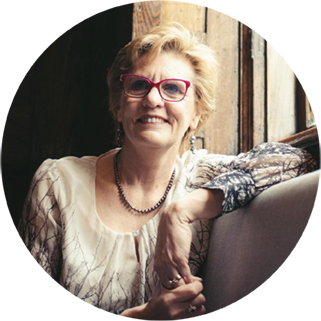 | 5. A conversation with Lois Letchford: Lois Letchford, author ofReversed: A Memoir, shares personal accounts of her son's struggles with learning how to read in school with dyslexia. After being told by a teacher that her son was "the worst child [she's] ever seen in [her] 25 years of teaching," she persisted with endless patience to help her son and began writing poems to pique his interest in reading. Where is he now? Was she successful? Listen here! |
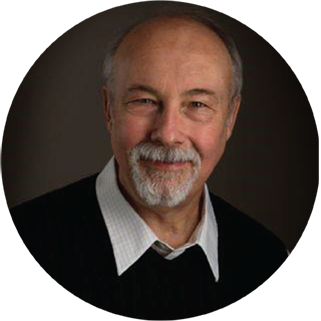 | 4. A conversation with Tim Rasinski: Susan and Tim Rasinski, coauthor of The Megabook of Fluency: Strategies and Texts to Engage All Readers, discuss his work at the reading clinic at Kent State University, the aspects of good fluency instruction, what constitutes fluency, and how reading speed is correlated to word recognition and automaticity. He stresses the importance of fluency and finding ways to be artful while teaching reading. Listen here! |
 | 3. A conversation with Emily Hanford: Susan sits down with Emily Hanford, education reporter and host of the Education Post podcast,and examines the big takeaways from her experience reporting on dyslexia, the patterns that emerged in her investigation, why reading instruction isn't more aligned with the science of reading, and the evolution of whole language, balanced literacy, and phonics instruction. Listen here! |
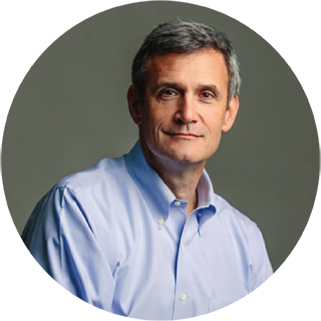 | 2. A conversation with Robert Pondiscio: Robert Podiscio, author of How The Other Half Learns: Equality, Excellence, and the Battle Over School Choice, , shares what inspired him to embark upon his esteemed career path and how we must acknowledge and address that children come to school from different places and backgrounds. Susan and Robert discuss the latest in education reform, the knowledge gap, how it is only going to get larger as kids move through grades, the limited time we have to correct it, and how to start doing so. Listen here! |
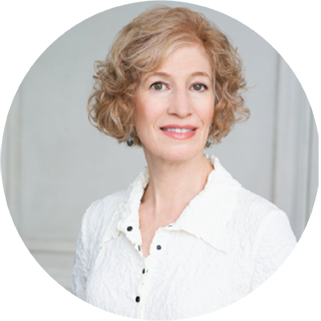 | 1. A conversation with Natalie Wexler: Susan and Natalie dive into her latest book, The Knowledge Gap: The Hidden Cause of America's Broken Education System—And How to Fix It, and discuss the lack of equity in reading education among students, the benefits of knowledge-rich curriculum inside and beyond the classroom, why it's important to build background knowledge while teaching foundational skills, and why professional development doesn't seem to be making a difference and how it can be improved.Listen here! |
 | 0. About Science of Reading: The Podcast: Welcome to Science of Reading: The Podcast! We bring educators and parents the latest insights from researchers and practitioners in early reading. We believe equity in education begins with reading science. Listen here! |
Creating Literacy Instruction for All Students 8th Edition Chapter 1
Source: https://amplify.com/science-of-reading-the-podcast/